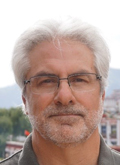Past President’s Column
Art Blume
Forgive me today, but the column consists of two very different reflections. First, many of you have asked me what is happening with the Warrior’s Path Task Force report that was generated from the 2020 presidential initiative. It is not gathering dust, yet. The report has been and is being used by several entities within APA as an EDI resource and a blueprint of sorts for decolonizing psychology and as an instrument for culture change within the Association. I am also aware that the report has generated interest among BIPOC professionals in Europe as well as the US. The work that was done by the task force was simply outstanding and has resulted in a report that has been widely praised and studied. Thank you, everyone, for keeping the dust off the covers of the report! I wanted to share an update before sharing the thoughts that follow.
The second reflection concerns campus news, maybe news you are receiving as well. Today was a big day at my university–we received notice that all fall semester courses will return to in-person instruction. My initial reaction was concern that it might be too soon—sure, the vaccinated are protected but many are not. My second reaction followed rapidly upon the first—it was great joy at returning to the classroom and having real rather than virtual representations of human contact. Later in the day, my third reaction was a deep sadness that at first was confusing—a very real sense of grief about what returning to the old “normal” might mean. The old “normal” has not been kind to us, our families, or the people we serve professionally. And the old “normal” has not been kind to the natural world.
I had the same sense of sadness driving on the freeway the other day, returning from a rare workday in my on-campus office that has been basically off limits since late March 2020. Driving Interstate 5 on a “normal” Monday around 5 pm is certainly not something to rejoice about typically. To some, the bumper-to-bumper traffic may have been a symbol of liberation from the pandemic but for me it only brought sadness when reflecting on the consequences of a return to “normal” traffic.
Dr. Jeff Mio, who many of you know, wrote me a very kind message privately during the spring lockdown of 2020, almost intuitively knowing that as an Indigenous person, I must have been experiencing great ambivalence during a time when humans were suffering greatly while simultaneously observing the natural world in the process of healing without human encroachment. I still feel that ambivalence. After all, novel viruses typically do not pass to humans unless humans are encroaching on the natural world.
To me, returning to the old “normal” means returning to a culture that has operated under colonial assumptions since its foundation. That same colonial culture harmed my ancestors, harmed those I know and love, and will continue to harm my children and grandchildren unless we uproot the old “normal.” Colonial materialism is destroying the natural world, our collective home. Frankly, it is not psychologically healthy for any of us to return to the pre-pandemic “normal,” despite the allure of many pre-pandemic activities and practices.
Some might view this column as being far astray from the theme of this season’s FOCUS. What in the world does this column have to do with healing in a colonial racialized culture? Why not discuss how reclaiming our cultural roots is the pathway to healing, and reclaiming culture will most certainly be an important part of decolonization? However, what if one’s culture is inextricably linked to the well-being of nature? How can such a culture be reclaimed when the return to the old “normal” might contribute to the extinction of many species? From an Indigenous perspective, as long as human needs are placed ahead of right relations with the natural world, radical healing will be transitory.
Perhaps now you can better understand my ambivalence about returning to the old “normal.” A return to the old normal in planetary relations may appear to benefit humans but it most certainly does not benefit the planet. I rejoice with you that we have the opportunity to be vaccinated from SARS-CoV-2 but simultaneously wish that the natural world had the opportunity to be vaccinated from us. The thought has left me more sad than relieved.
Very respectfully,
Art
Reference
Aiello, M., Bismar, D., Casanova, S., Casas, J. M., Chang, D., Chin, J. L., Comas-Diaz, L., Salvo Crane, L., Demir, Z., Garcia, M. A., Hita, L.; Leverett, P., Mendez, K., Morse, G. S., Shodiya-Zumault, S., O’Leary S. M., Weil, M. C., & Blume, A. W. (2021). Protecting and defending our people: Nakni tushka anowa (a warrior’s path). Journal of Indigenous Research, 9, Article 8. https://digitalcommons.usu.edu/kicjir/vol9/iss2021/8
Focus Spring/Late Summer 2021
- Spring 2021 Celebration of Students
- Graduate Student Representative’s Column
- Vision as Division 45 APA Council Representative
- Student Editor’s Column
- Special Interview with Accomplished Psychologist, Dr. Joseph E. Trimble
- Past President’s Column
- President-Elect’s Column
- Centering Community Healing from a Warrior’s Path Task Force Lens
